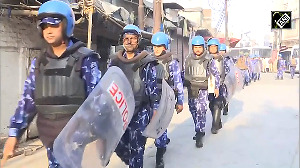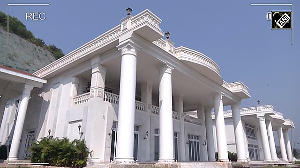Stating that top Al Qaeda leaders are plotting their next attack from Pakistan, a key US senator has said that Pakistan has become the 'ground zero' for terrorist threat to the United States.
'As America's second post-9/11 President takes office, a single country has become ground zero for the terrorist threat we face,' Senator John Kerry, Chairman of the powerful Senate Foreign Relations Committee, wrote in an opinion piece published in The Washington Times.
'The consensus among our intelligence agencies is that top Al Qaeda leaders are plotting their next attack from Pakistan, where the prevalence of religious extremists and nuclear weapons make that country the central, crucial front in our struggle to protect America from terrorism,' Kerry said.
Observing that the current situation in Pakistan is worsening, Kerry wrote: 'Pakistan is under enormous pressure from all sides, from tensions with India to a ferocious insurgency in the tribal belt to a financial crisis that threatens the solvency of the Pakistani state.'
All of this is being held together by a fledgling civilian government not even a year old. For our sake and theirs, America must do more to help Pakistan, he argued.
Crucial to this effort will be finding a winning regional strategy that recognises the centrality of Pakistan's relationships with neighbours such as Afghanistan and India, he said.
Kerry was recently in Afghanistan, Pakistan and India and had met the top leaders of the three countries. 'The Chairman of the Joint Chiefs of Staff, Adm Mike Mullen, has called the border region the 'site of planning for the next attack' on the United States,' he said.
'It has become conventional wisdom that the war in Afghanistan can be lost in Pakistan, whose tribal belt offers a sanctuary from which Taliban insurgents launch cross-border raids against us and our Afghan allies.'
What is often overlooked, however, is that the opposite is true as well: Violent instability in Afghanistan can undercut essential counterinsurgency efforts in Pakistan, he said.






 © 2025
© 2025